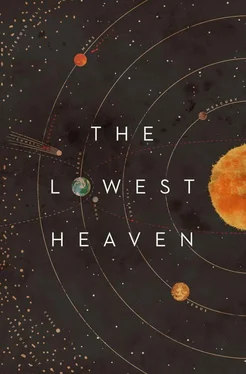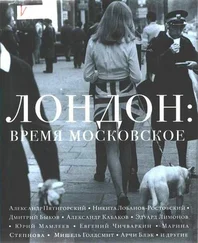“Not exactly. But you are wrong in one matter. The Collective is not all that there is. Or at least, it isn’t any more. There has been …” And now Oleg had the sense that Gris was choosing its words with particular care, and not a small measure of distaste, as if it found the whole business painful. “A division within our ranks. The formation of a second caravan. A breakaway movement, springing from within the Collective.”
Oleg listened intently. His masters either knew nothing of this, or they had failed to brief him adequately. “When, what, how?”
“It would probably be easier if I showed you,” Gris said.
Soon the caravan had fallen behind them, receding over the horizon until even the stallion and the balancing woman were lost. Their shadows, Oleg noticed, were slowly lengthening, stretching ahead of the fast little surface vehicle Gris had commandeered. Mercury was a small world and they were covering ground very rapidly, pushing the Sun toward the horizon. Beyond, but closer by the moment, was the transition zone of the terminator and the extreme cold of the unlit face. He thought of his delicate little ship, how far he was from it now, how totally at the mercy of his cyborg host.
“Tell me about Rhawn.”
“There’s not much to say. She was always restless◦– in her art and her soul. It’s what brought her to Mercury. She found contentment with us, for a while. But always there was that need to push against her own limits, to break out of existing formalisms. It was only a matter of time before she attached herself to the Totalists.”
“The breakaway movement?”
“Of course.”
“You said they’d formed a second caravan. Do they move around Mercury, the same way you do?”
“Most of the time. They’re camped now.”
“What’s so special about them, that Rhawn had to leave the rest of you? Aren’t you radical enough?”
“They are purists. Extremists, if you will. We have accepted extensive physiological alteration to adapt to life on the Playa. It enables us to work almost without restriction, to submit ourselves to the act of artistic creation. But even we have limits.”
“Really?”
“Our bodies and minds are still hampered by the design compromises of biology. In the Totalists’ view, that makes us inefficient and in need of radical improvement.”
“What could be more efficient than you?” Oleg asked.
“Robots,” Gris said.
At length they traversed the terminator and entered the starlit nightside of Mercury. In his suit Oleg felt nothing of the precipitous temperature drop, seven hundred awesome kelvins of it, but the faceplate markers recorded the transition from appalling heat to appalling cold clearly enough, and now the suit was having to work just as competently to keep him from freezing to death. He supposed that Gris’s life-support mechanisms were coping with a similar shift in demands.
“They keep away from us, mostly,” Gris said. “We aren’t enemies, as such. We are obliged to conduct a certain amount of business, and of course the Totalists have no contact with the outside world at all. On the rare occasions when they need something, they have to rely on our cooperation. But I would not say our relationship is an easy one. There have been … acts of artistic sabotage. Denied, of course. But it’s no secret that the Totalists view our work as decadent, corrupted, mired in a state of creative exhaustion.”
“I suppose it was inevitable,” Oleg said. “There can’t have been an artistic movement in history that hasn’t eventually fractured into two or more creative poles. If it’s any consolation, they’ll have their own splitters sooner or later!”
“No,” Gris said. “It’s no consolation at all. We made something beautiful here, Oleg. There’s no reason in the world it had to break up like this.”
As they approached the Totalists’ encampment Oleg was struck by how profoundly the scene resembled an exact negative image of the dayside caravan. The sky was a nearly faultless black, its perfection only marred (or improved upon, perhaps) by a sprinkling of stars and planets, the great glittery arch of the Milky Way and the faint dust haze of the solar system’s zodiacal light.
Whereas the caravan had moved under the full blaze of day, here the only lights were those provided by the Totalists themselves. The encampment was smaller than the caravan, but the essentials were similar: it was a cluster of things which could be dragged or self-propelled across Mercury, when the time came to move. They also had sails and pennants, except that these were picked out in edges of colourful neon: reds and yellows, blues and greens, purples and oranges. The figures moving around the camp’s periphery were also outlined in bright hues. Oleg had been expecting something austere, but the proliferation of colours and shapes elevated his spirits.
“It’s marvellous!” he said.
Rising from the illuminated camp was what Oleg took to be a piece of large-scale art in the same spirit as the stallion and the balancing woman. It was a cluster of spires, or perhaps a single main spire attended by a large number of smaller ones, linked by a connecting tissue of arches and flying buttresses. The pale structure had a knobby, rough-cast haphazardness about it. It might almost have been glued together from millions of sea-shells, or fossils.
“The Bone Cathedral,” Gris said, with a hint of dismissiveness.
“Do they move that around with them? It looks much too fragile.”
“No, it stays fixed to this spot. They’ve been building it for several years now. The day and night cycles don’t seem to do it any harm. When it is time for a new Totalist to complete their crossing, the caravan circles the Bone Cathedral.” Gris applied the brakes and brought the vehicle to a halt. They were still a decent kilometre from the Totalist encampment. “You’d best go the rest of the way yourself.”
“What do I do?”
“You need do nothing. They will either talk to you or ignore you. They already know that you are here.”
He disembarked from the vehicle. He looked up at the goggle-faced creature that had become his companion, fully aware that if Gris abandoned him here◦– and the Totalists disdained to help◦– he would be in a great deal of trouble. They had come much too far for the range of his suit.
“I would not be too long about it,” Gris warned.
So Oleg wandered across the black Playa. His suit projected a terrain overlay. It was still functioning properly. He kept looking back, making sure the vehicle and the cyborg still waited. But Gris remained. And as the Totalist camp loomed larger, so one of the neon forms broke away from the blaze of colour and came loping over to meet him.
The thing had arms and legs, a body and a head in roughly the right proportions, but there was no possibility that it was anything but a robot. There was no room in it for anything human. The thing’s chassis was an open exoskeleton, offering an easy view of its internal mechanisms. Oleg saw lots of machinery in there, much of it lit up and flashing in pretty colours, but there was nothing that looked biological. Its head was a cage that he could see all the way through, only loosely stuffed with instruments and modules.
“I’d like to speak to Rhawn,” Oleg said confidently.
“Who are you, and why have you come?” The robot’s voice, picked up by his helmet, was lighter in tone than that of Gris.
“I am Oleg. I’ve come from Jupiter to offer Rhawn a moon of her own and the chance at reverse cyborgisation◦– to become fully human again.”
The robot emitted a noise like fading static. It took Oleg a moment to realise he was being laughed at.
“Go home, meat boy. Be on your merry way.”
Читать дальше












